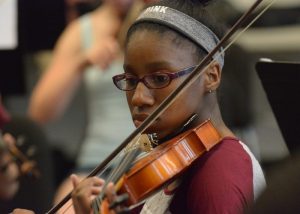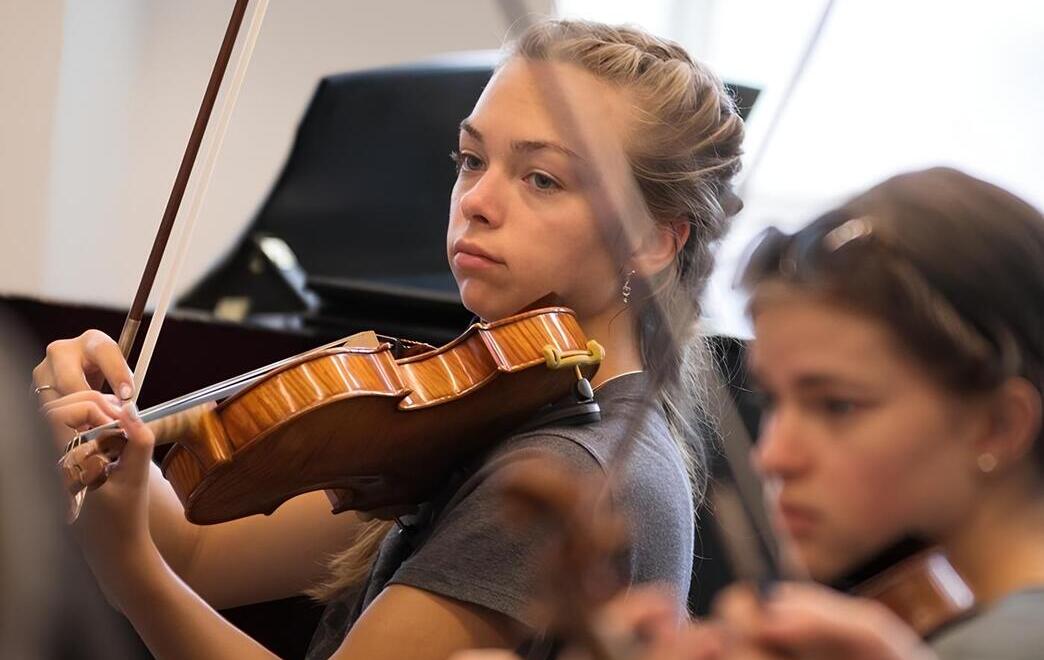As April emerges with the sun and birds, minds drift to the summer months and how students will spend their days. One option for many families is a music camp. Whether instrument-specific or ensemble-based, day or residential, here are 5 things you should look for in a music camp for your child to be sure they will have a positive experience.
1. Performance Opportunities
It is important for students to be working toward a common goal. There is nothing more satisfying than working on something bigger than yourself – and in the case of a young musician, an ensemble making music together. With added safety protocols this year, performances may be recorded and distributed to be enjoyed with the family at home, but the experience of working in an ensemble with challenging new music, under the direction of a professional conductor, is still invaluable.
2. Screening Process

Regardless of your child’s musical ability, every student is in a different place on their journey. Do not be afraid of having to submit a sample of your student’s playing – often called a ‘placement recording’ or ‘audition recording’ – when registering for a music camp. This means the camp organizers want to make sure your child is placed with students of similar ability. In a normal year, this might take place on the first day of camp. With current health restrictions, sending a recording ahead of time might be a necessary solution to ensure proper placement for your child.
Dr. David Pope, Associate Professor of Music Education and Chair of the Professional Studies department at the Baldwin Wallace University Conservatory of Music, has some tips to help students create a recording that accurately represents their skill level. “Plan ahead and give yourself enough time to make multiple recordings over a few days,” he said. “Have your teacher listen to your initial recording before submitting it so they can provide feedback. Their feedback will allow you to improve and re-record your placement recording. Many teachers can probably help with this before or after school. I also suggest choosing music that highlights the best parts of your skillset (e.g., tone quality, different rhythms, shifting, vibrato). Your teacher is a wonderful asset who can help you select appropriate repertoire.”
3. Individualized Attention
As each student is in a different place on their musical journey, you want to be sure they are able to advance and grow as musicians while at camp. Some form of individualized attention – private or semi-private lessons – is a great way for them to learn how they can improve. Individual feedback forces a student to stretch their ability and gain confidence in the process. Dr. Pope adds, “Individual attention allows the instructor to tailor their teaching to students’ exact needs. It also means students will receive personalized instruction that will help them develop their performance skills at a quicker pace.”
4. Recreation
Allowing students unstructured time to socialize and establish deeper connections with fellow campers who have similar interests not only makes camp more fun, it can lead to a more positive sense of self. These new friendships can – and do – last lifetimes.
5. Convenience
Obviously any camp must meet the needs of the camper and family, but flexibility is key in making it work with today’s busy lifestyles. Residential camps could be few and far between this summer, so a day camp close by with flexible pick-up and drop-off times may be a great option to accommodate work schedules. Finding a camp that has anticipated this need is a good indicator of a well-planned, positive week of musical fun for your child.
BW Community Arts School is offering week-long String and Band Day Camps in June. To learn more, visit bw.edu/sap.

